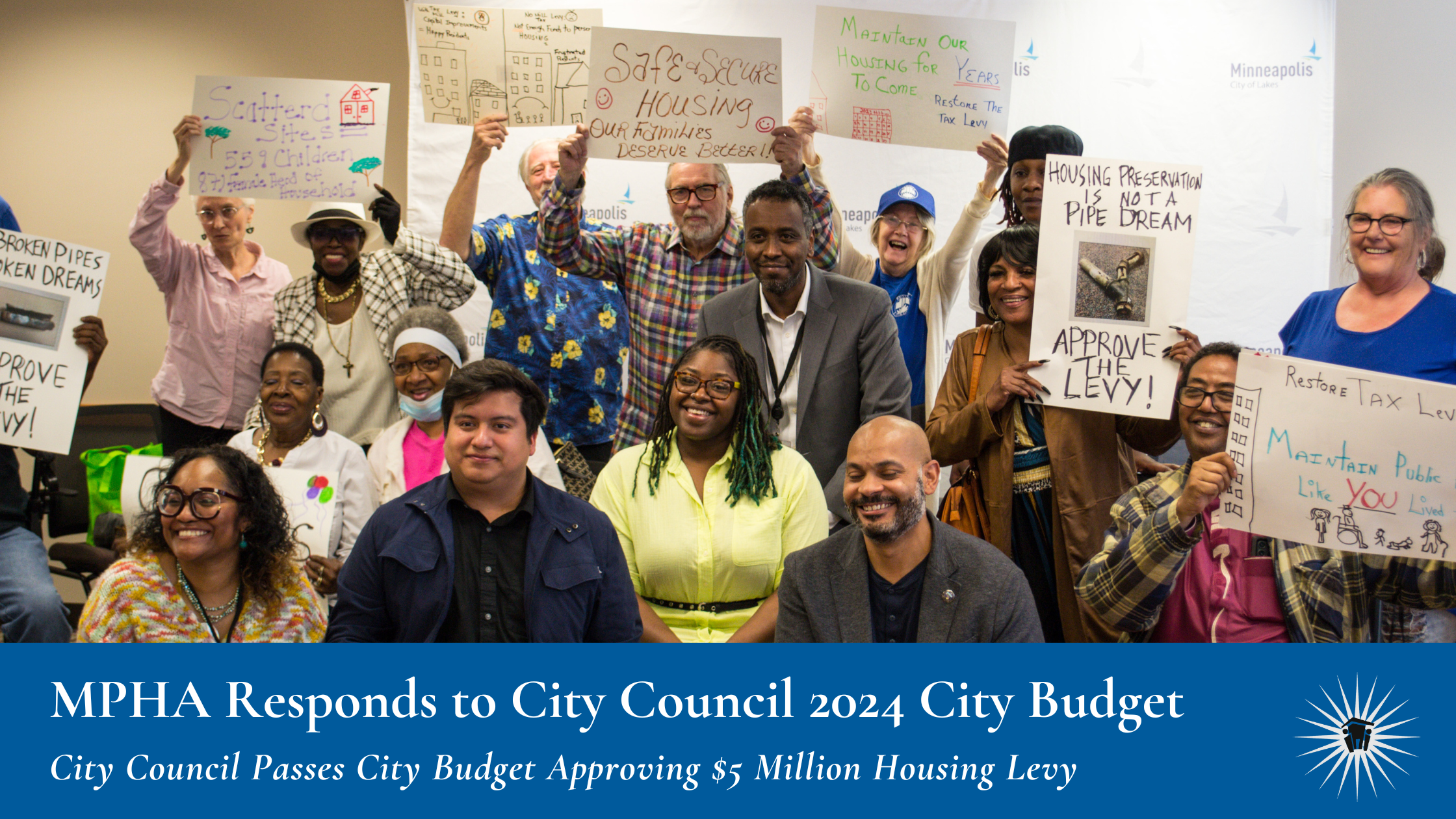With the Minneapolis City Council passing the 2024 city budget, including restoring the city’s housing tax levy, Minneapolis Public Housing Authority (MPHA) Executive Director/CEO, Abdi Warsame, released the following statement:
“I commend Mayor Frey for his leadership recommending restoring the city’s housing tax levy and the City Council for approving that recommendation,” said Minneapolis Public Housing Authority Executive Director/CEO, Abdi Warsame. “Restoring the housing levy has long been a priority of MPHA residents, and this unprecedented amount of levy funding is a direct result of their advocacy. At a time where communities across the state are struggling to deliver affordable housing, Minneapolis leaders continue to make historic investments to preserve and produce the deeply affordable housing our city—and region—desperately needs.”
Historically, HUD has only provided about 10 percent of the funding necessary for major building improvements. That means each year the agency is forced to choose temporary fix options to triage leaky roofs, repair crumbling brick façades, replace damaged 60-year-old windows, or improve decades-old high-rise electrical and plumbing systems instead of more comprehensive solutions. Over time, this problem has compounded, creating the agency’s current capital backlog of $229 million in needs—a problem that is only getting worse.
This long-term funding agreement, announced earlier this summer, will target both preservation and new-unit production, as well as health, safety, code compliance, and quality of life improvements. All told, this new funding enables MPHA to address at least $25 million in current and upcoming capital needs while paving the way for long-term preservation of approximately 500 units over the next five years. Additionally, the plan also supports the potential creation of 100+ new units and includes capital improvements targeting top concerns of MPHA residents.
This new levy funding increases the city’s current ongoing funding support to MPHA’s capital improvements by five times (previously, the annual ongoing support totaled $1 million). It also amounts to a 25 percent boost on top of the annual capital funding MPHA receives from the U.S. Department of Housing and Urban Development (HUD), which was $20 million in 2022.



